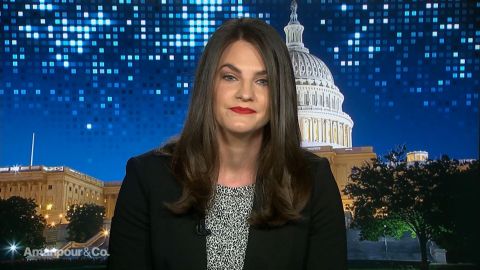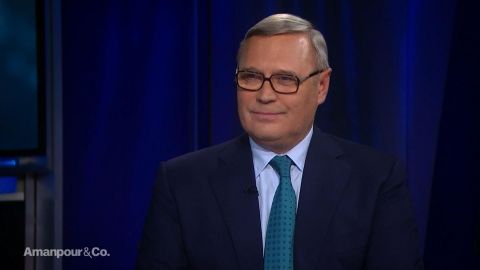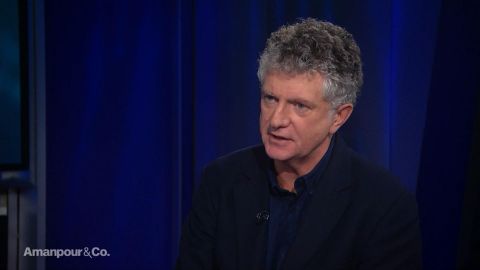Read Transcript EXPAND
CHRISTIANE AMANPOUR: He said — this was a perfect phone call, on these issues that you’re talking about with President Zelensky, how would you interpret that? What’s your reaction to that?
NINA JANKOWICZ, DISINFORMATION FELLOW, WILSON CENTER: Well, I don’t think it was the perfect phone call for Ukraine and I certainly don’t think it was a perfect phone call for the United States either. We need to be supporting Ukraine in its path towards democratic development, in its anti-corruption work, not weaponizing that corruption that exists in Ukraine and creating disinformation around it in order to meet our own domestic political gains. It’s certainly not the role that the United States has played in the past and one that I hope we don’t play in the future.
AMANPOUR: Well, you know, and we sort of introduced this concept as we were coming to you, that now the E.U. ambassador, the U.S.-E.U. ambassador, Gordon Sondland, is testifying, and he’s — you know, we’ve got a look at his opening statement where he actually says that, you know, we thought it better to go through government channels, but we were directed to go through Rudy Giuliani. And he went on to say, you know, we all agreed perhaps that was the best way to go. It wasn’t until later that we thought perhaps there was an ulterior motive on Giuliani’s part and his henchmen — and his associates’ part. Tell us what you — how do you analyze what’s going on in — with all of these ambassadors and Trump appointees, not to mention the fired or recalled official U.S. ambassador to Ukraine?
JANKOWICZ: Well, I think it’s a very murky situation. I was in Ukraine during the presidential election, the Ukrainian presidential election this spring, covering it, and the — all the smearing of Ambassador Yovanovitch started just 10 days before the Ukrainian presidential election, first round. And I thought to myself, this is a terrible time for people who are outside of U.S. politics to be undermining U.S. foreign policy in Ukraine. We need to be sending a signal of support, not one of confusion and this incongruence between official policy and what the White House and Trump’s associates are saying and doing. And from the very beginning, it was clear that Mr. Giuliani and others surrounding President Trump were attempting to smear the ambassador, a career ambassador who has served under Republican and Democratic administrations and is always pitch perfect in everything she says, her support for Ukraine, her support for democracy writ large. That’s the sort of message that the United States needed to be sending. And now, unfortunately, as we know, Ambassador Yovanovitch was recalled ostensibly because of the work she did in Ukraine and the strong support that she had in terms of delivering that U.S. stance, which we had taken for many, many years.
About This Episode EXPAND
Mikhail Kasyanov sits down with Christiane Amanpour to explain Russia’s role in the situation in Syria. Nina Jankowicz joins the program to discuss Ukraine and the impeachment inquiry, and Jonathan Powell offers his perspective on the UK and EU’s new Brexit deal. Gulalai Ismail tells Michel Martin about her advocacy for human rights.
LEARN MORE



